Nhân dịp năm mới, 10-12/2/2014, GS Arndt von Haeseler (hiện là GS của hai trường đại học tại Vienna, Áo) và TS. Bùi Quang Minh – là các chuyên gia nghiên cứu tại Center for Integrative Bioinformatics Vienna (CIBIV, http://www.cibiv.at/) đã về thăm và làm việc với Khoa CNTT và nhóm tin sinh học. Trong chuyến thăm này, GS Haeseler và TS. Bùi Quang Minh đã trình bày hai bài seminar (xem tóm tắt bên dưới) về các dự án điển hình của nhóm CIBIV. Seminar đã thu hút các nhà khoa học từ các đơn vị khác nhau của ĐHQG tới tham dự.
Dưới đây là một số hình ảnh của buổi seminar:
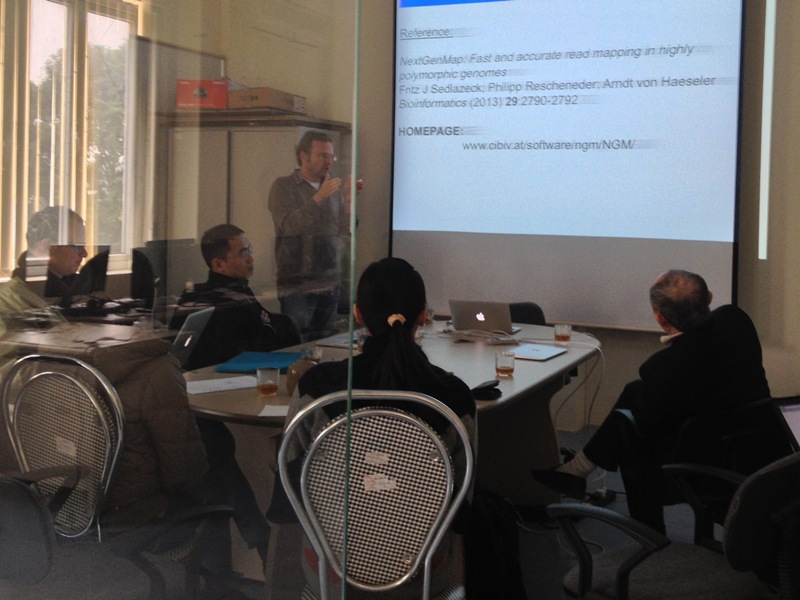
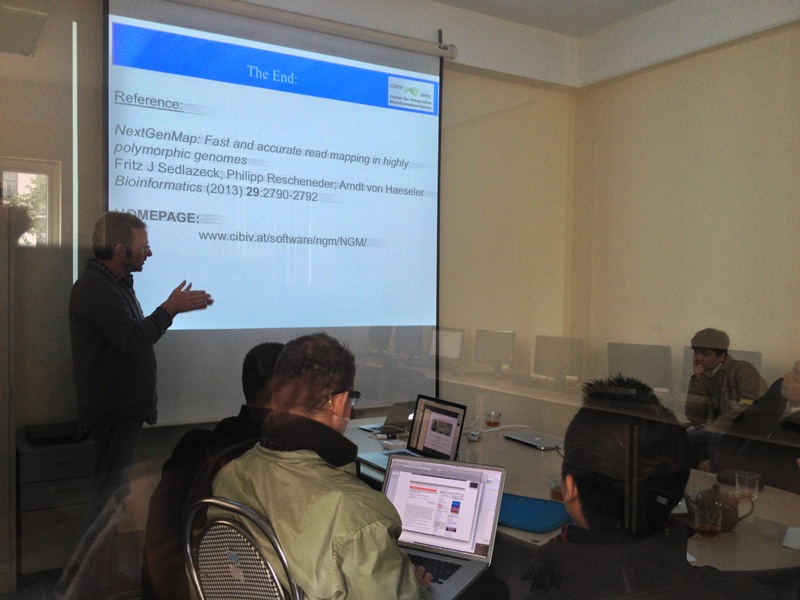
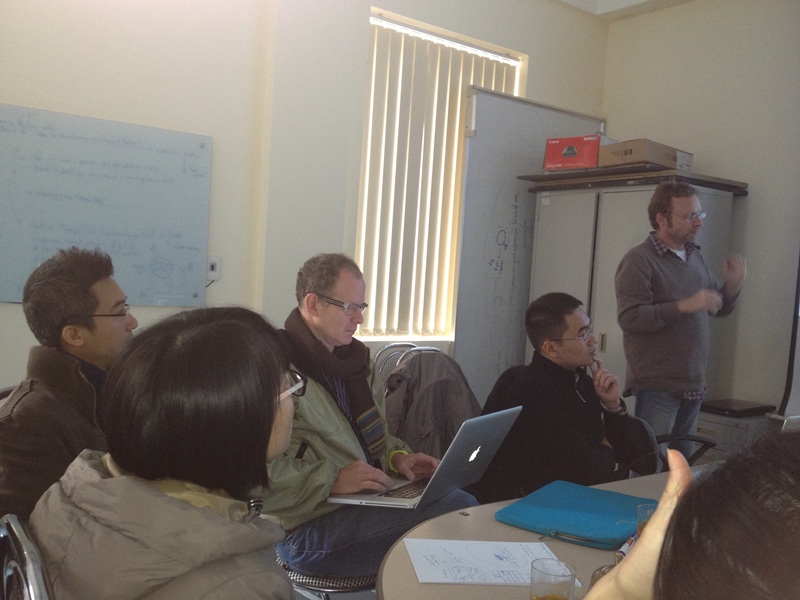
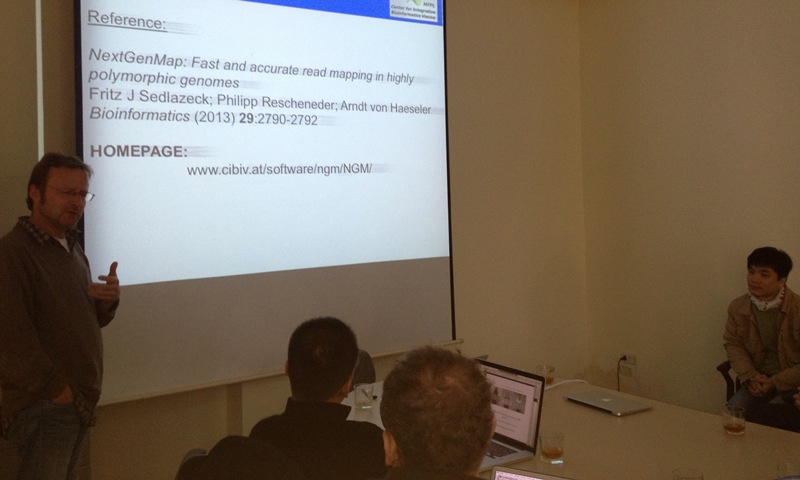
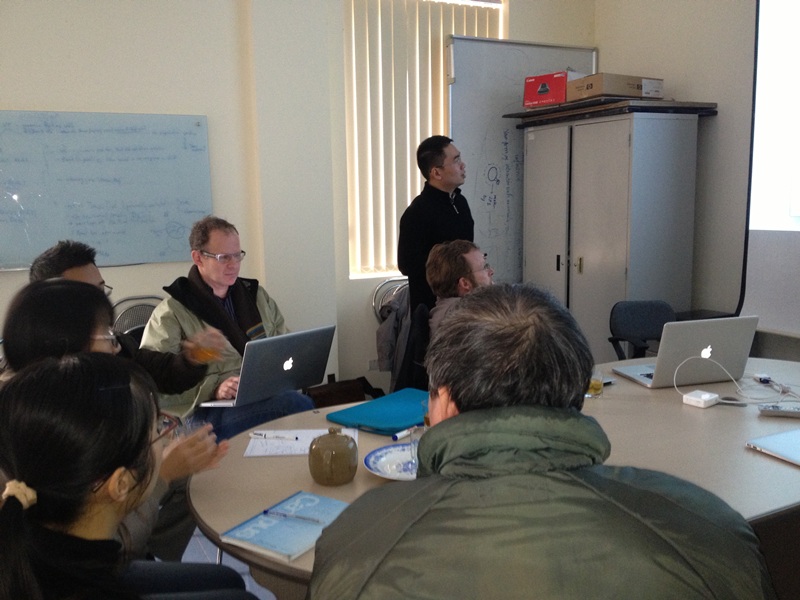
The Center for Integrative Bioinformatics Vienna is part of the Max F. Perutz Laboratories (MFPL). It is a joint research platform of the Vienna University and the Medical University Vienna and is also funded by theVienna Science and Technology Fund (WWTF).
—————————————————————————
Tóm tắt seminar:
"NextGenMap: A fast and accurate mapper for next generation sequencing reads"
When choosing a read mapper, one faces the trade off between speed and the ability to map reads in highly polymorphic regions. Here, we report NextGenMap, a fast and accurate read mapper, which reduces this dilemma. NextGenMap aligns reads reliably to a reference genome even when the sequence difference between target and reference genome is large, i.e. highly polymorphic genome. At the same time, NextGenMap outperforms current mapping methods with respect to runtime and to the number of correctly mapped reads. NextGenMap efficiently uses the available hardware by exploiting multi-core CPUs as well as graphic cards (GPUs), if available. In addition, NextGenMap handles automatically any read data independent of read length and sequencing technology.
Joint work with Fritz Sedlazeck, Philipp Rescheneder
“Terrace-Aware Phylogenomic Inference”.
Abstract. With the advent of next generation sequencing technologies the traditional phylogenetic analysis has moved from single gene to multiple gene analysis with the aim of reconstructing the species tree of life. In such phylogenomic inference, it is plausible to assume that each gene evolves under its own substitution model. However, due to missing data such a partition model causes the so-called phylogenetic terraces on which many species trees show the same likelihood. Here, we propose a phylogenetic terrace aware (PTA) data structure that avoids likelihood computations for trees belonging to the same terrace. We implemented the PTA structure in the IQ-TREE software (freely available at http://www.cibiv.at/software/iqtree) and compared it with a
naive implementation. IQ-TREE obtained substantial speedups by e.g., avoiding 83% computation for a supermatrix with 73% missing data. However, the real speedup depends on the amount of missing data. IQ-TREE is, therefore, well suited for large phylogenomic analyses.